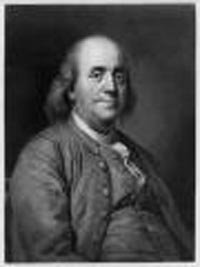
On January 17, 1706, Benjamin Franklin was born. He was a native of Massachusetts, born in the harbour town of Boston. Professionally, Franklin was a printer and publisher, but he was also a philosopher, experimenter, inventor, activist, statesman, and ambassador. To sum it up, Ben was a doer.
He made a great contribution to public education when he founded the first circulating library. Eleven years later, he proposed the idea for the University of Pennsylvania. He also founded the Union Fire Company in Philadelphia, organized the first Militia, and founded the first American fire insurance company.
You probably know about Ben’s kite-flying experiment. No, he did not discover electricity. He proved his theory that lightening is a naturally occurring electrical current. This is only the first of his many experiments with lightening and air-born electricity.
His active curiosity and ingenuity gave us the lightening rod and many of the terms we associate with electricity, and he inspired further experimentation and invention by such scientists as Thomas Edison.
Franklin spent most of his later years as a statesman. He started off representing the people of Pennsylvania, and is best remembered for his work as a representative of Pennsylvania to the Continental Congress. He later spent much time in European countries as an ambassador—charming his way into their affections and winning approval for the newly united States—and helped to negotiate several treaties with them.
Three years before his death, he was elected president of the Pennsylvania Society for Promoting the Abolition of Slavery and, as delegate to the Constitutional Convention, helped to draft the Constitution of the United States.
He died in Philadelphia at the age of 84, and left behind a legacy called the United States of America. This is quite an impressive list of accomplishments for a man whose only formal training was in the business of printing.
